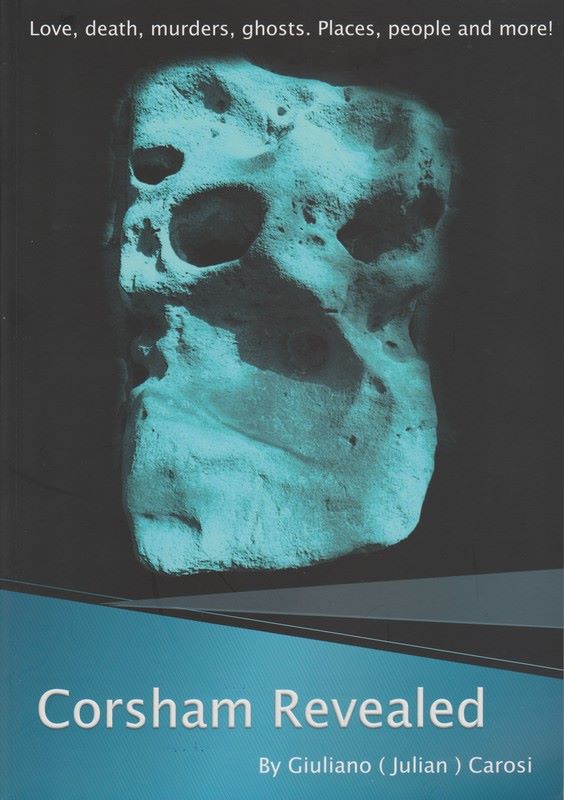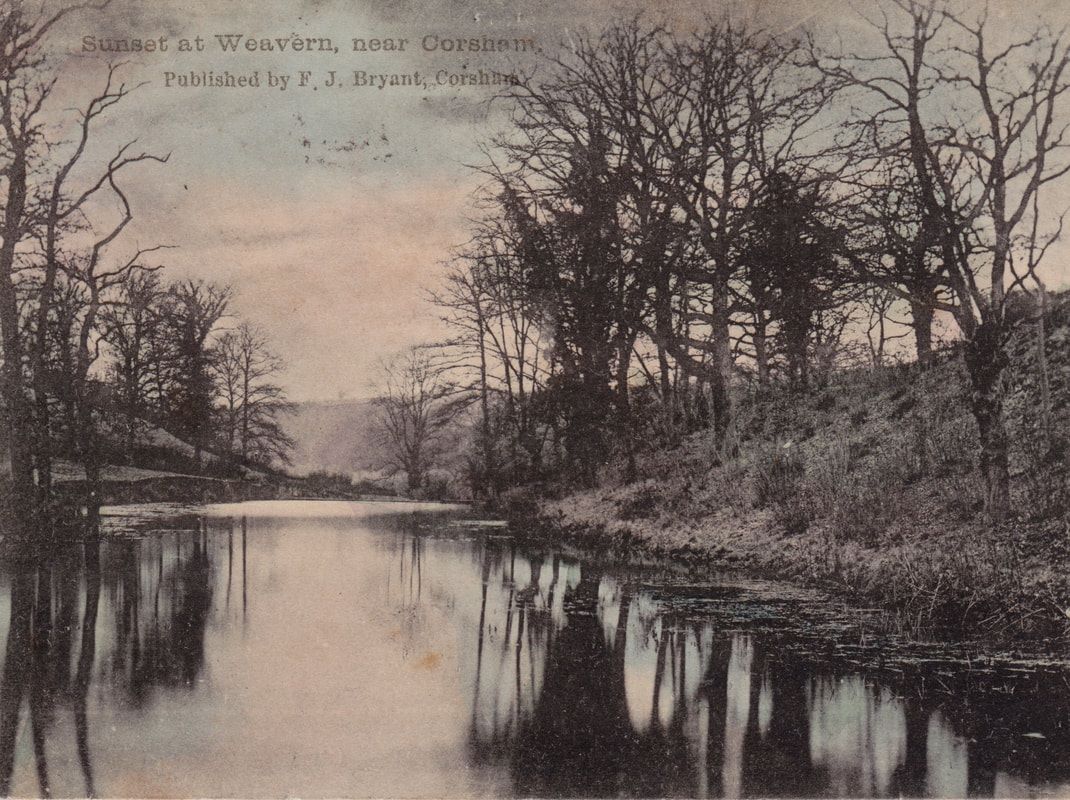|
Corsham Revealed by Julian Carosi
Reviewed by Alan Payne December 2018 If you're interested in local history (and probably you are if you're reading this) don't miss Julian Carosi's recent book. He calls it Corsham Revealed: Love, death, murders, ghosts and goes on to say that there's much more than that. He's right, there's 232 pages of fascinating pieces about the area from Roman to modern times and over a hundred photographs, all immaculately produced. This review covers the many articles which are directly relevant to Box. Box Tunnel Julian dedicated the book to the 150 people who died in the making of the tunnel based on extensive research, including newspaper reports, the writings of Thomas Gale who worked as a tunnel foreman and researches at the Wiltshire History Centre, Chippenham. He recalls how a telescope with two cross-hairs was used to ensure the tunnel lined up with poles erected at its east and western ends - a great piece of research from the archives of the Worcester Natural History Society published in June 1841. For the more hardy of us, take a look at some of the tragedies reported in the local newspapers - shocking, melancholic and dreadful accidents - all reported in gory detail by our Victorian ancestors. |
People
The book recalls stories of the good, bad and tragic people of the Corsham and Box area. His good guys include a history of the work of the VAD (Voluntary Aid Detachment) at Corsham, which involved 1,100 volunteer hours by Reverend Vere Awdry and uncounted work by the Box women who ran the local area under the control of Mrs Langton. The reports of casualties and some of their memories, such as Fred Wheeler's poem written whilst an invalid, show the needs of servicemen and the relief that the hospital was able to give patients.
The story of the local highwayman, variously known as Boulter or Baxter, is told in delicious detail with fascinating information of his attacks on travellers from his base on the Corsham to Chapel Plaister Roads. A very bad guy who was the bogeyman for countless parents to chastise their offspring.
And the tragic death of John Hanning Speke, African explorer, killed accidentally (probably), the day before a debate he was due to have with Richard Burton at Bath in 1864. It wasn't Speke's first brush with disaster and Julian tells of his capture and conflict with a native gaoler ten years previously.
The book recalls stories of the good, bad and tragic people of the Corsham and Box area. His good guys include a history of the work of the VAD (Voluntary Aid Detachment) at Corsham, which involved 1,100 volunteer hours by Reverend Vere Awdry and uncounted work by the Box women who ran the local area under the control of Mrs Langton. The reports of casualties and some of their memories, such as Fred Wheeler's poem written whilst an invalid, show the needs of servicemen and the relief that the hospital was able to give patients.
The story of the local highwayman, variously known as Boulter or Baxter, is told in delicious detail with fascinating information of his attacks on travellers from his base on the Corsham to Chapel Plaister Roads. A very bad guy who was the bogeyman for countless parents to chastise their offspring.
And the tragic death of John Hanning Speke, African explorer, killed accidentally (probably), the day before a debate he was due to have with Richard Burton at Bath in 1864. It wasn't Speke's first brush with disaster and Julian tells of his capture and conflict with a native gaoler ten years previously.
Miscellany
There is plenty to admire if, like me, you enjoy the unusual little details that bring great national events to life. There are newspaper reports of the Swing Riots (protesting against industrialisation and machines which took the place of labouring people in the 1830s) for which many people were imprisoned or transported. I particularly enjoyed the articles about the porch of St Bartholomew's Church, the quarries you may not have seen behind the Cross Keys Public House and the fabulous details of the Small Pox House opposite the pub.
Or you may prefer the story of the 1895 men's urinal built in Station Road by the Corsham Parish Council, its attempts to catch graffiti artists spoiling the building and the need to hide occupants from public view. Of course those were the days when local government was flush with money. Many more double entendres are included in the story.
There is plenty to admire if, like me, you enjoy the unusual little details that bring great national events to life. There are newspaper reports of the Swing Riots (protesting against industrialisation and machines which took the place of labouring people in the 1830s) for which many people were imprisoned or transported. I particularly enjoyed the articles about the porch of St Bartholomew's Church, the quarries you may not have seen behind the Cross Keys Public House and the fabulous details of the Small Pox House opposite the pub.
Or you may prefer the story of the 1895 men's urinal built in Station Road by the Corsham Parish Council, its attempts to catch graffiti artists spoiling the building and the need to hide occupants from public view. Of course those were the days when local government was flush with money. Many more double entendres are included in the story.
Want More?
The book is a great read, every page brings new fascinating details and, of course, it's all by our local historian. Copies can be purchased at the Corsham Book Shop, on eBay, Amazon and Stop Press in Box, and a signed copy can be had direct from Julian via email at: [email protected]. Price £14.99.
The book is a great read, every page brings new fascinating details and, of course, it's all by our local historian. Copies can be purchased at the Corsham Book Shop, on eBay, Amazon and Stop Press in Box, and a signed copy can be had direct from Julian via email at: [email protected]. Price £14.99.

